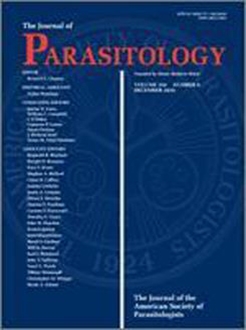The manipulation of host organisms by their parasites has captured the attention of ecologists, parasitologists, and the public. However, our knowledge of parasite behavior independent of a host is limited despite the far-reaching implications of parasite behavior. Parasite behaviors can help explain trematode community structure, the aggregation of parasites within host populations, and can potentially be harnessed in biocontrol measures. In this study, we used a simple choice chamber design to examine whether trematode parasites can detect the infection status of a potential host and avoid hosts infected with a competitively dominant species. Our results show that Schistosoma mansoni, a competitively subordinate species, can detect and avoid hosts infected with a competitively dominant parasite, Echinostoma caproni. However, E. caproni, despite showing a significant preference for snails infected with S. mansoni over uninfected snails, showed little ability to detect the infection status of the host or even the host's presence. We propose subordinate species may be under stronger selection to avoid dominant competitors whereas dominant competitors may be more strongly selected to find any suitable host, regardless of infection status. Previous research has focused on parasites distinguishing between ‘host’ and ‘non-host’, which does not fully capture the complexity of these interactions. However, the ability of subordinate parasites to determine the infection status of a host results in a consistent evolutionary advantage.
How to translate text using browser tools
10 January 2020
The Road Not Taken: Host Infection Status Influences Parasite Host-Choice
J. Trevor Vannatta,
Thomas Knowles,
Dennis J. Minchella,
Alyssa M. Gleichsner
ACCESS THE FULL ARTICLE

Journal of Parasitology
Vol. 106 • No. 1
January 2020
Vol. 106 • No. 1
January 2020
competition
Echinostoma caproni
Host-Choice
Parasite Behavior
Schistosoma mansoni




